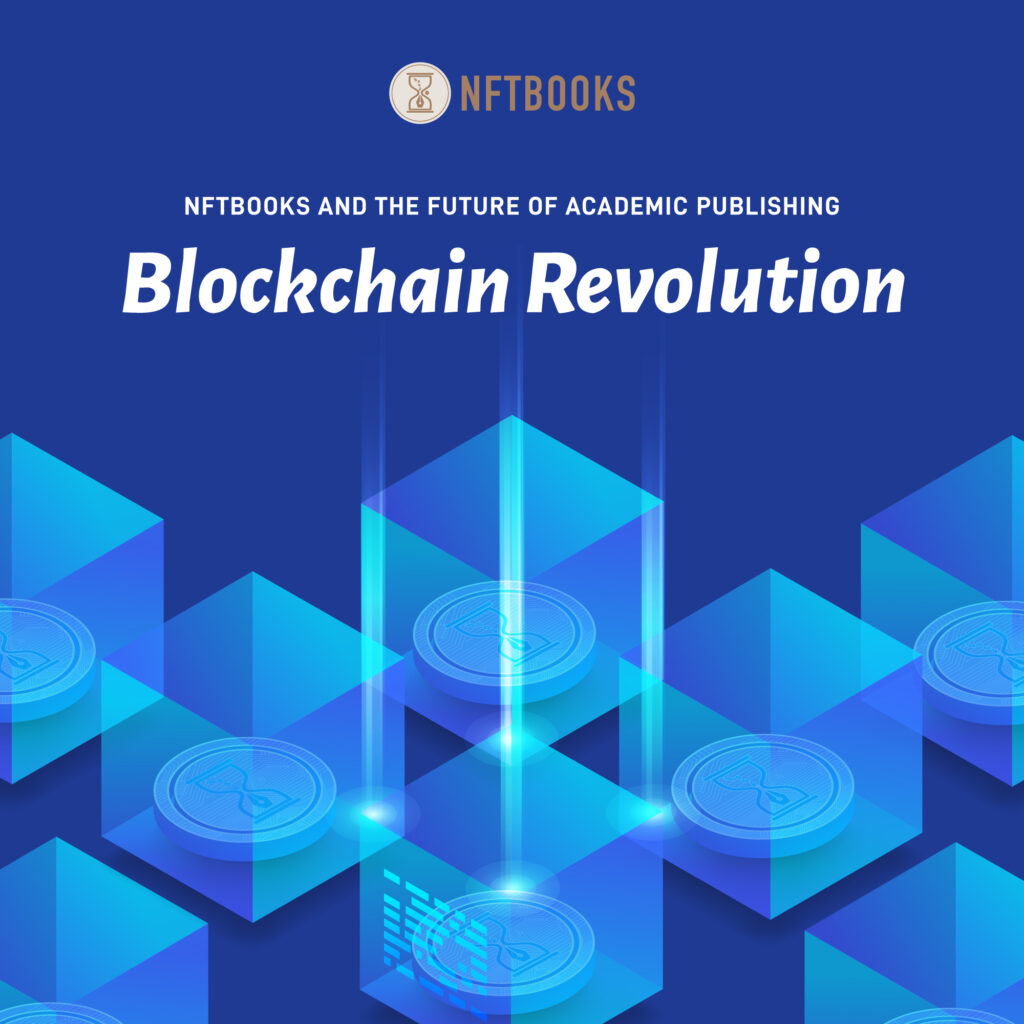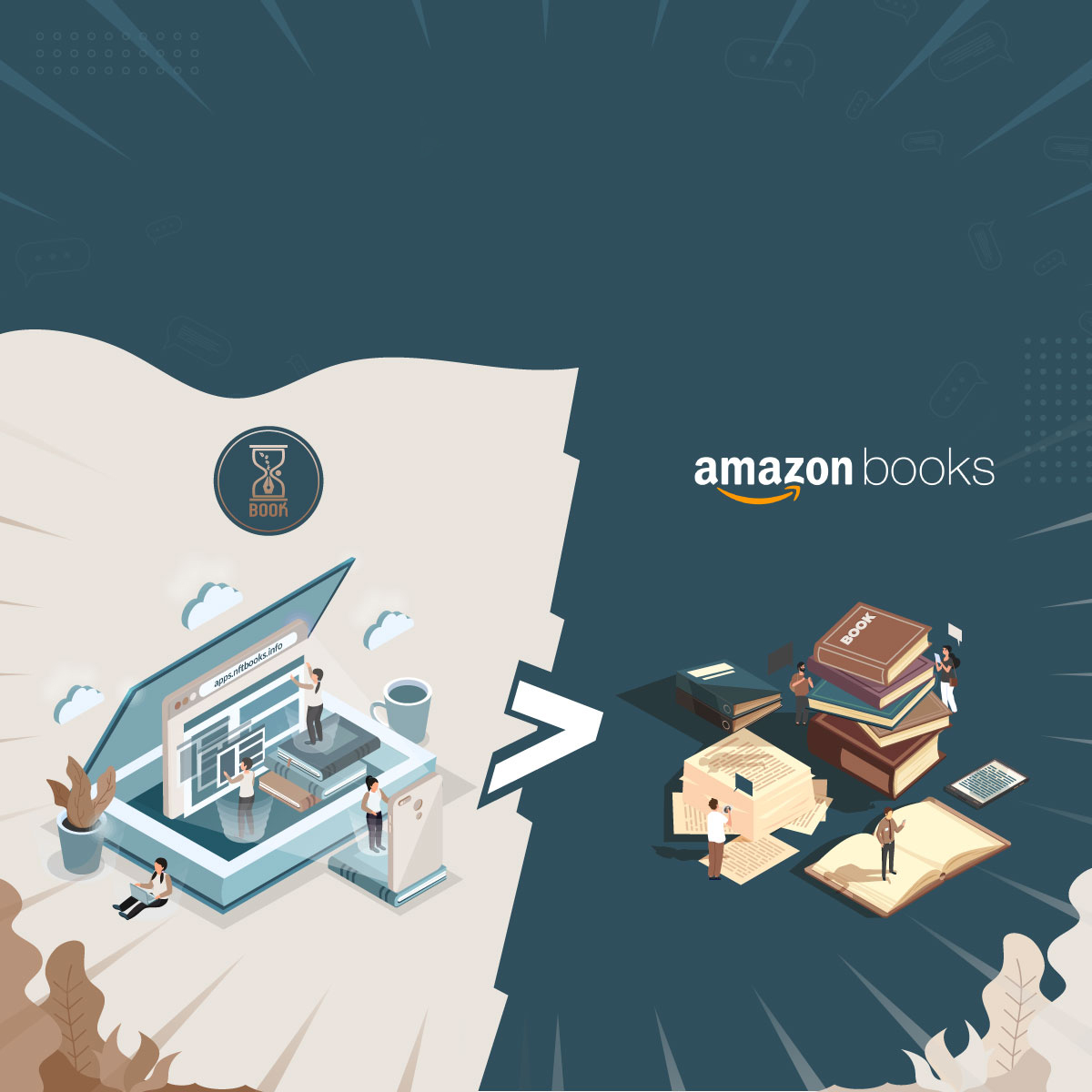In the rapidly evolving digital age, the academic publishing industry faces numerous challenges that hinder the dissemination of knowledge and the advancement of research. From high textbook costs and limited access to educational resources to issues of copyright and transparency, the traditional academic system is fraught with inefficiencies and inequities. Enter NFTBOOKS, a revolutionary platform leveraging blockchain technology to transform academic publishing. By addressing these systemic issues, the platform promises to democratize access to knowledge, protect intellectual property, and incentivize scholarly contributions.

The Problems in Traditional Academic Publishing
- High Textbook Costs: Textbooks are notoriously expensive, often placing a significant financial burden on students. Traditional publishing models involve multiple intermediaries, each taking a cut, which drives up prices.
- Limited Access to Educational Resources: Access to high-quality educational materials is often restricted by paywalls and institutional subscriptions, limiting availability for students and researchers, especially in underprivileged regions.
- Copyright and Intellectual Property Issues: Authors frequently struggle with copyright violations and lack of control over their work once it is published. Traditional publishers often retain significant rights, leaving authors with limited recourse.
- Lack of Transparency in Academic Publishing: The publishing process is often opaque, with unclear criteria for acceptance and inconsistent peer review standards.
- Incentivizing Academic Contributions: The current system does not adequately reward researchers for their contributions, particularly for work that does not fit traditional metrics of success, such as negative results or replication studies.
- Challenges in Peer Review: Peer review, a cornerstone of academic quality, is often slow, biased, and lacks accountability. This can delay the dissemination of important research and create barriers to entry for new scholars.
- Access to Research and Scholarly Materials: Paywalls and subscription fees restrict access to research articles, hindering the free flow of information and collaboration across institutions and borders.
- Academic Fraud and Plagiarism: The ease of copying digital content without proper attribution has led to a rise in academic fraud and plagiarism, undermining the integrity of scholarly work.
- Lack of Collaboration and Interdisciplinary Research: Traditional academic silos limit opportunities for interdisciplinary research and collaboration, stifling innovation and comprehensive problem-solving.
- Limited Opportunities for Authors and Researchers: Traditional publishing models offer limited avenues for authors to monetize their work beyond initial publication, often leading to financial instability for many researchers.
How NFTBOOKS Addresses These Problems
NFTBOOKS harnesses the power of blockchain technology to create a transparent, equitable, and efficient academic publishing ecosystem. Here’s how it tackles each problem:
- Reducing Textbook Costs: NFTBOOKS allows authors to publish their textbooks as NFTs (non-fungible tokens) directly on the platform. By eliminating intermediaries, authors can set fair prices, making textbooks more affordable for students. The blockchain ensures that transactions are transparent and secure, further reducing costs associated with traditional publishing. Readers of NFTBOOKS can also purchase books at a cheaper cost from subsequent sales by other readers or choose to rent them on a daily basis for less than a penny per day.
- Expanding Access to Educational Resources: NFTBOOKS democratizes access to educational materials by making textbooks and research papers available on a decentralized platform. This open-access model ensures that students and researchers from all over the world can access high-quality materials without prohibitive costs.
- Protecting Copyright and Intellectual Property: Each book or article published on NFTBOOKS is minted as a unique NFT, which is recorded on the blockchain. This ensures clear proof of ownership and allows authors to retain control over their work. Smart contracts embedded in NFTs enable authors to set terms for usage, resale, and royalties, ensuring perpetual passive income.
- Enhancing Transparency in Academic Publishing: Blockchain technology inherently provides a transparent and immutable record of transactions. NFTBOOKS leverages this to create a transparent peer review process, where reviews and decisions are recorded on the blockchain, ensuring accountability and consistency.
- Incentivizing Academic Contributions: NFTBOOKS introduces innovative reward mechanisms. Authors earn NFTBS tokens for publishing their work, which can be traded or used within the platform. Additionally, perpetual royalties from resales and rentals of their work provide ongoing income, incentivizing continued contributions.
- Streamlining and Improving Peer Review: The peer review process on NFTBOOKS is enhanced through blockchain’s transparency and traceability. Reviewers’ identities and reviews are recorded, ensuring accountability. Automated smart contracts can streamline the review process, reducing delays and biases.
- Ensuring Access to Research and Scholarly Materials: By removing paywalls and subscription fees, NFTBOOKS provides free or affordable access to research articles. Authors can choose to make their work open access, funded by grants or institutional support, ensuring that research is accessible to all.
- Combating Academic Fraud and Plagiarism: The blockchain’s immutable ledger provides a tamper-proof record of authorship and publication dates. This makes it easy to verify the originality of work and trace instances of plagiarism, thereby safeguarding academic integrity.
- Fostering Collaboration and Interdisciplinary Research: NFTBOOKS encourages collaboration by providing a platform where researchers can share their work and connect with peers across disciplines. The transparency and openness of the blockchain facilitate interdisciplinary projects and innovative research collaborations.
- Expanding Opportunities for Authors and Researchers: NFTBOOKS offers multiple revenue streams for authors, including initial sales, rentals, resales, and perpetual royalties. Additionally, authors can engage in the platform’s affiliation program, earning commissions by promoting their work and attracting new readers.
Unique Features of NFTBOOKS
Translation Services: NFTBOOKS enables authors to reach a global audience through its translation services. Linguists can collaborate with authors to translate books into various languages, expanding the reach and increasing earnings. Authors can set terms for translation rights, ensuring fair compensation for both parties.
Affiliation Program: NFTBOOKS offers an innovative affiliation program where authors can incentivize readers to promote their work. By offering a percentage of commission as a reward for inviting new readers, authors can enhance their visibility and readership, leading to increased sales and engagement.
Decentralized and Secure: NFTBOOKS operates on a decentralized platform using blockchain technology, ensuring that all transactions are secure, transparent, and immutable. This decentralization removes the control of a single entity, promoting fairness and equity in the publishing process.
Interactive and Immersive Content: The platform supports multimedia integration, allowing authors to include videos, audio clips, and interactive elements in their work. This enhances the reading experience and provides a richer, more engaging way to present academic content.
Smart Contracts: Smart contracts automate and enforce the terms of publication, sales, and royalties. This reduces administrative overhead and ensures that authors are fairly compensated according to pre-set agreements.
Conclusion
NFTBOOKS is not just a platform; it is a movement towards democratizing academic publishing and empowering authors and readers alike. By leveraging blockchain technology, NFTBOOKS addresses the critical issues plaguing the traditional academic system, providing solutions that enhance transparency, protect intellectual property, reduce costs, and incentivize contributions. As we move further into the digital age, embracing platforms like NFTBOOKS will be crucial for the continued evolution and democratization of knowledge. Authors and researchers stand to benefit immensely from this revolutionary approach, ensuring that their work reaches a wider audience and continues to generate value long after its initial publication.







